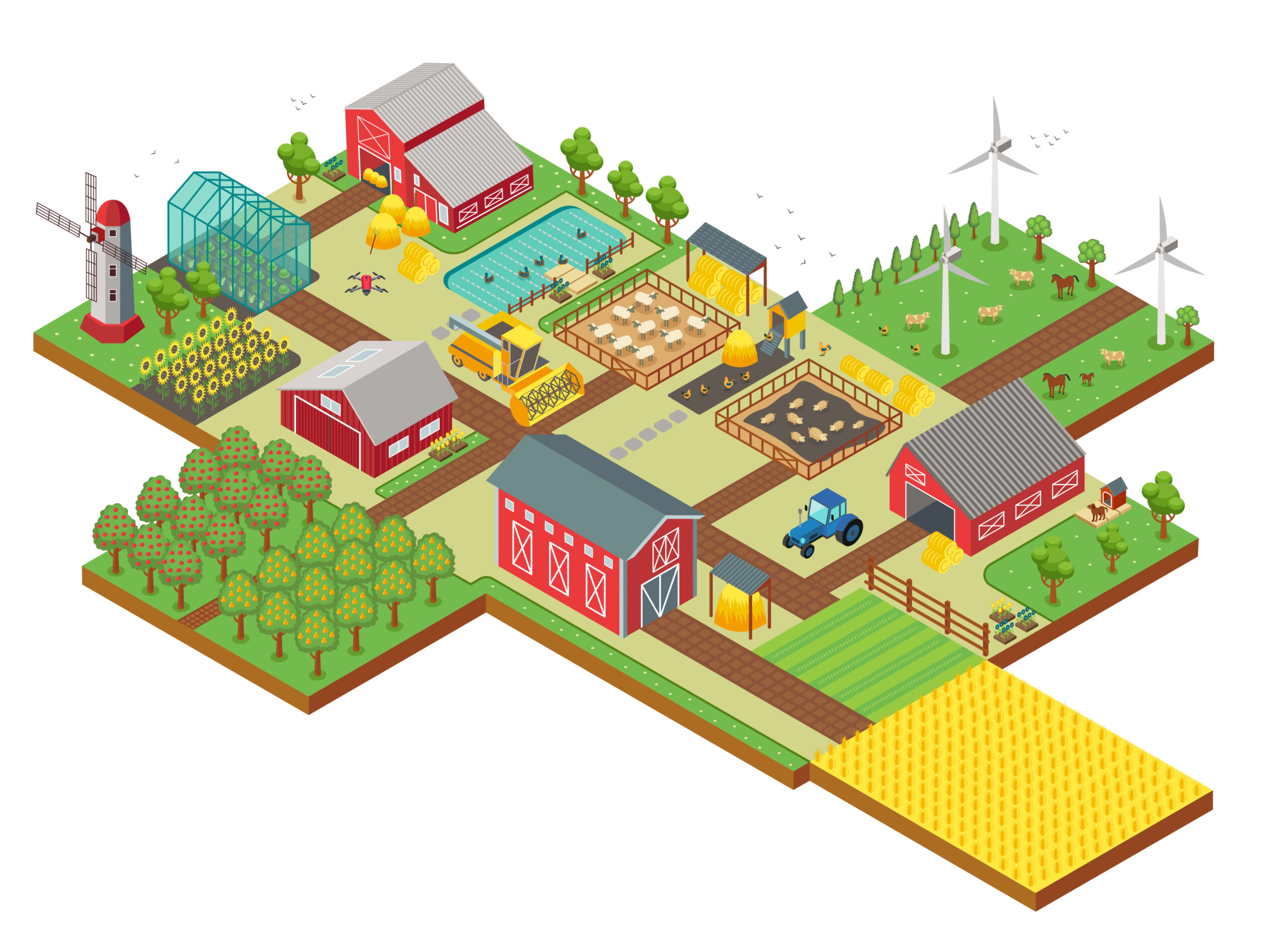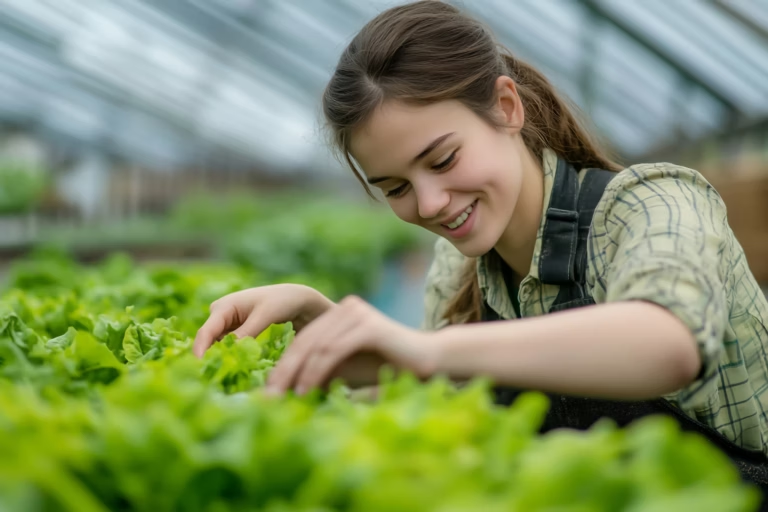Agriculture
Cultivating Your Future: Explore Careers in Agriculture
Discover the Greater Whitsunday Agriculture Industry
Agriculture isn’t just about farming; it’s a dynamic field offering a multitude of career paths. With the global demand for food expected to double by 2040, the industry is evolving rapidly, integrating advanced technologies and sustainable practices.
Spanning approximately 90,354 km²—about 5% of Queensland’s land mass—the Greater Whitsunday region is a powerhouse in agriculture, contributing around 10% of the state’s agricultural production[1]. This vibrant sector thrives on a diverse range of crops and livestock, including sugar cane, cattle, aquaculture, and a variety of fruits and vegetables.
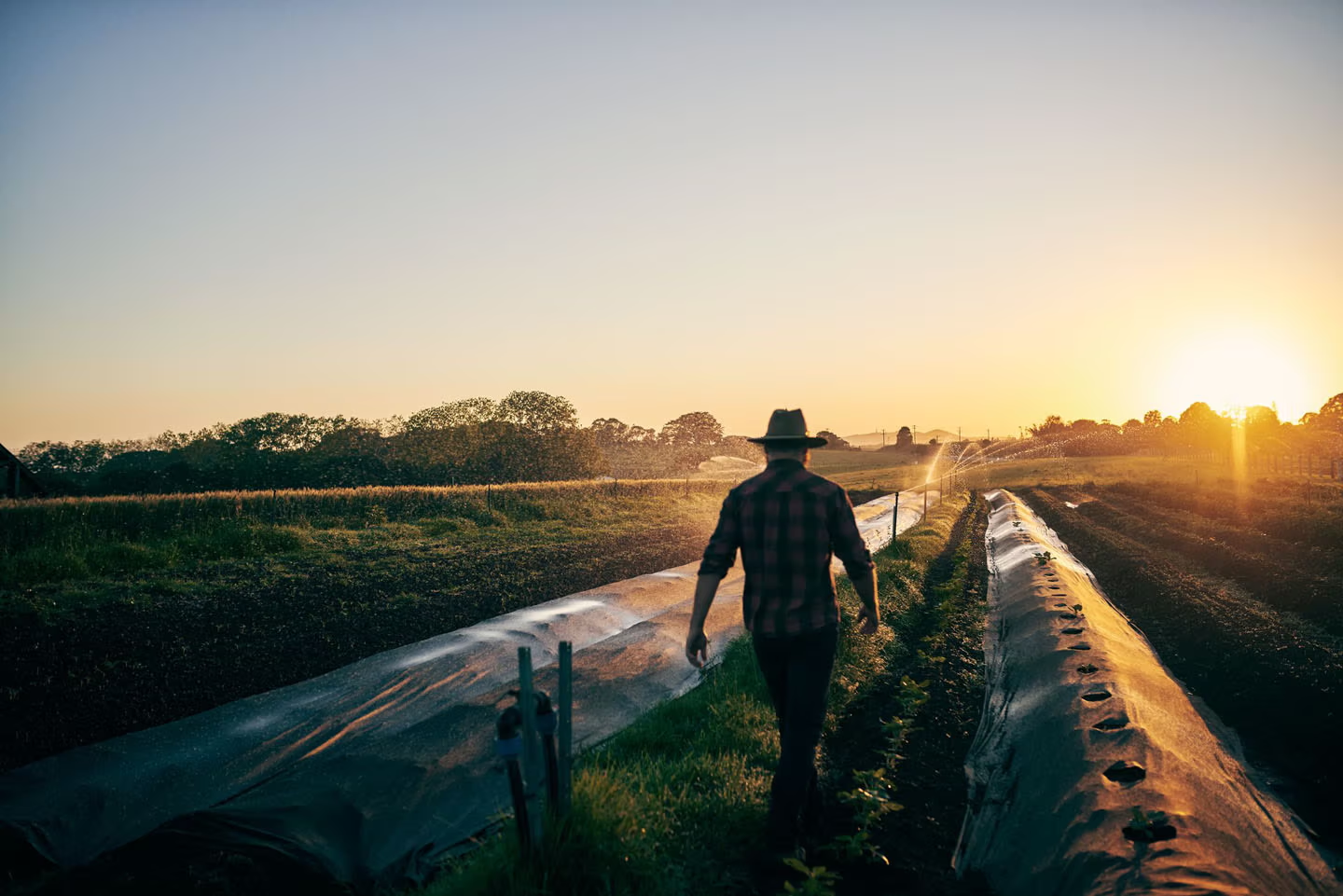
Why Consider a Career in Agriculture?
-
Tech is
Changing the GameFrom self-driving tractors to drones that monitor crops, agriculture is one of the most tech-driven industries out there. If you’re into innovation, problem-solving, or just like working with the latest gear, there’s a place for you.
-
More Than
Just FarmsWhether you’re into science, engineering, business, or working outdoors, agriculture has careers that go way beyond traditional farming. Think AI-powered irrigation, vertical farming, or even marketing the next big food trend.
-
Make
an ImpactAgriculture is about feeding the world and protecting the planet. Whether it’s developing more sustainable ways to grow food or using tech to reduce waste, you’ll be part of something bigger.
Industry Insights
Did you know the Australian agriculture sector is experiencing a demographic shift, with young people now accounting for a quarter of the workforce? [2] This influx brings fresh perspectives and innovation, essential for the industry’s growth.
On top of that, there are approximately six job opportunities for each graduate of a university agriculture course, highlighting the high demand for skilled professionals.[3]
Exciting Career Opportunities in Agriculture
When people think of agriculture, they often picture tractors and crops—but that’s just one piece of the puzzle. Agriculture is a massive industry that blends science, business, technology, and sustainability. It needs researchers developing drought-resistant crops, engineers designing precision farming equipment, and even data analysts using AI to predict harvests. Whether you want to work outdoors, in a lab, on a computer, or even in marketing, there’s a role in agriculture that fits your skills and interests.
Agriculture isn’t just one job—it’s a whole industry made up of different areas working together. Here are some of the spaces where you could build a career:
-
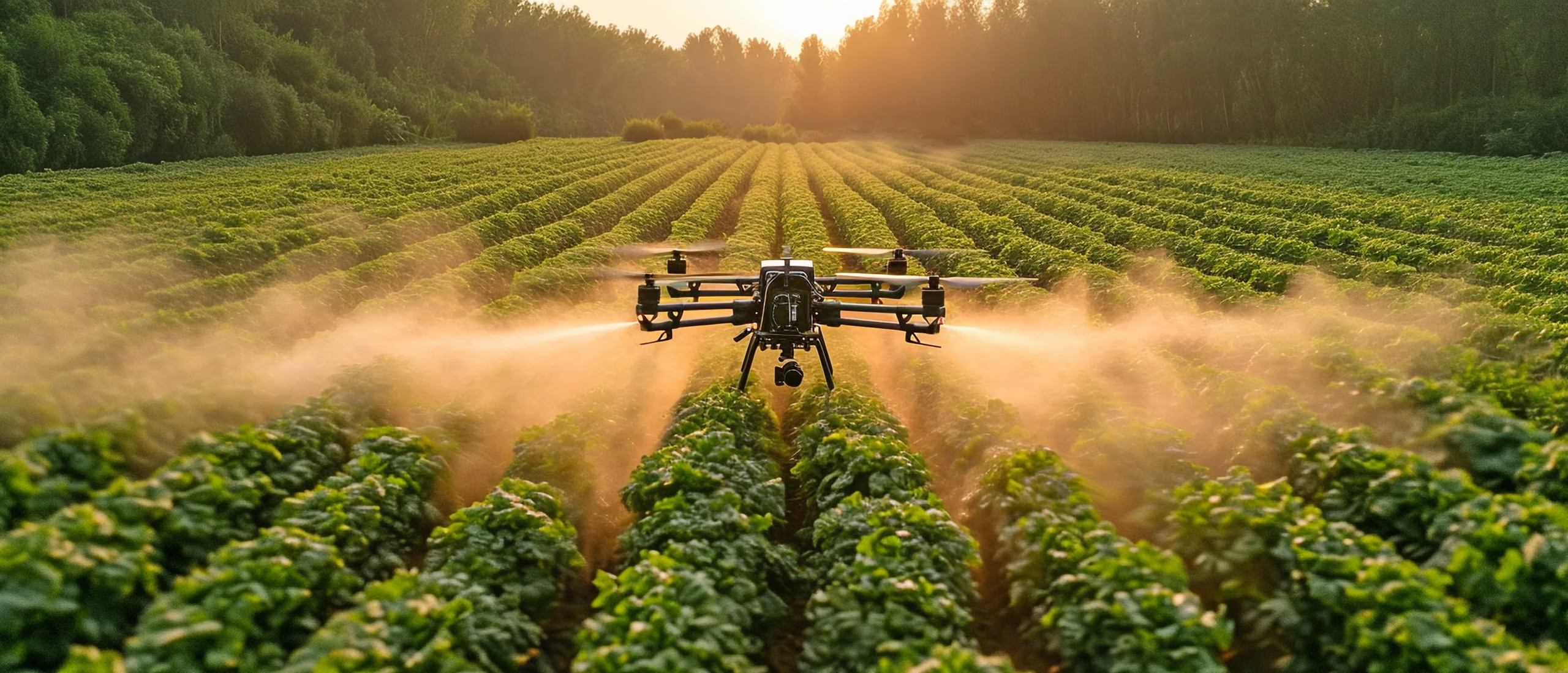
Science & technology
Use cutting-edge research to improve crops, design smart irrigation systems, or develop new ways to grow food more sustainably.
-
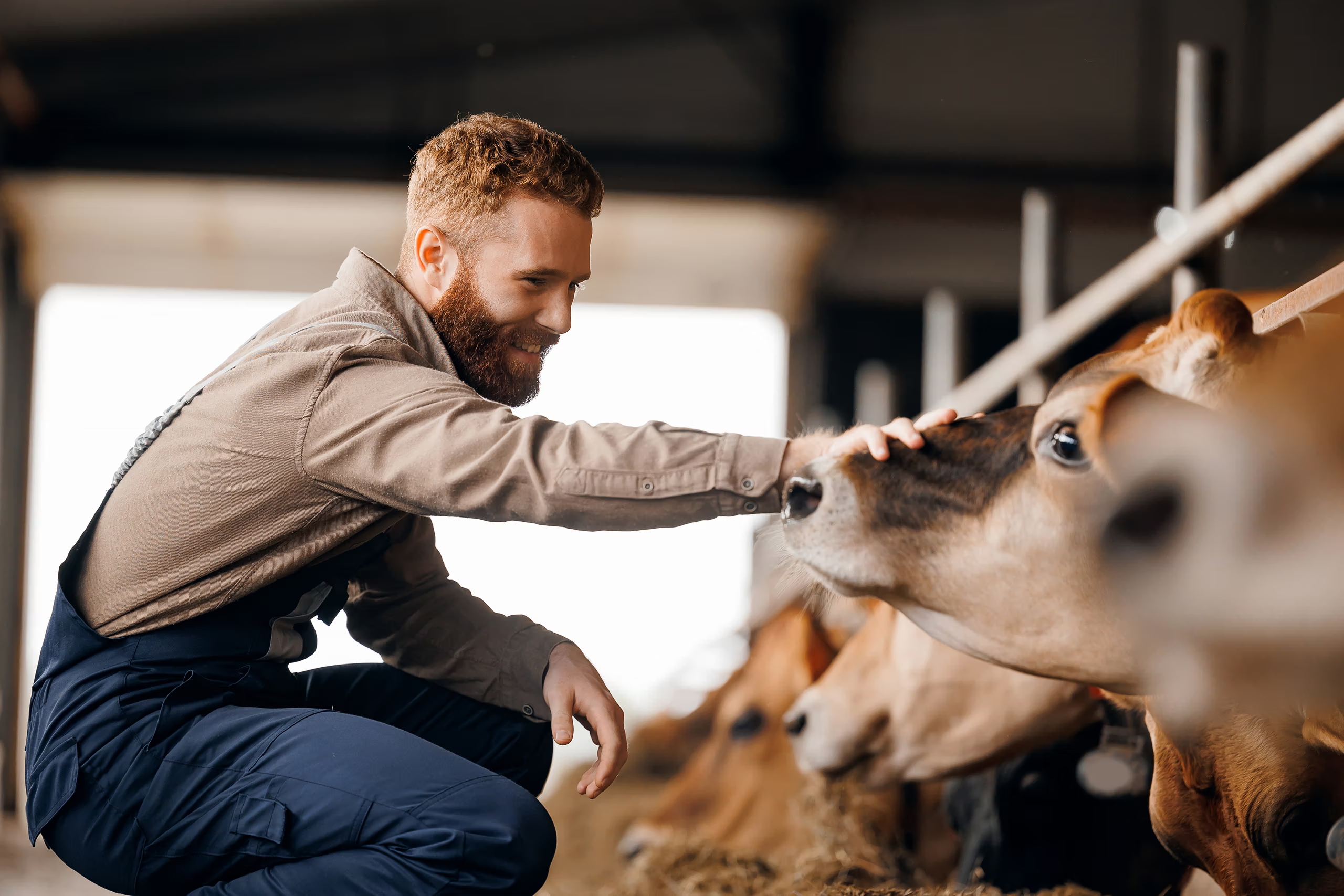
Working with animals
From livestock health and breeding to nutrition and welfare, careers in animal production play a key role in feeding the world.
-
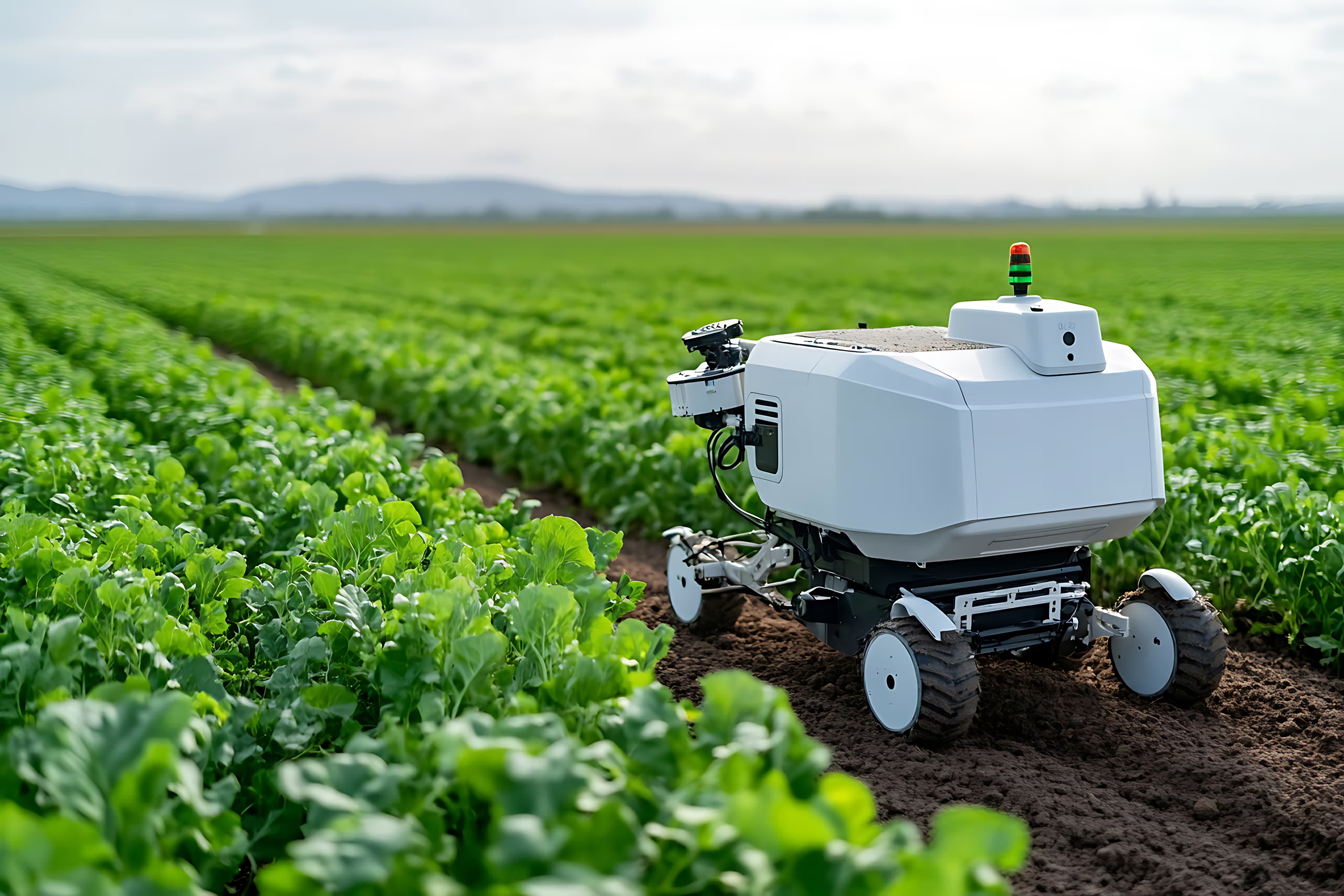
Mechanical & engineering
Design and maintain the advanced machinery, robotics, and precision tech that power modern farming.
-
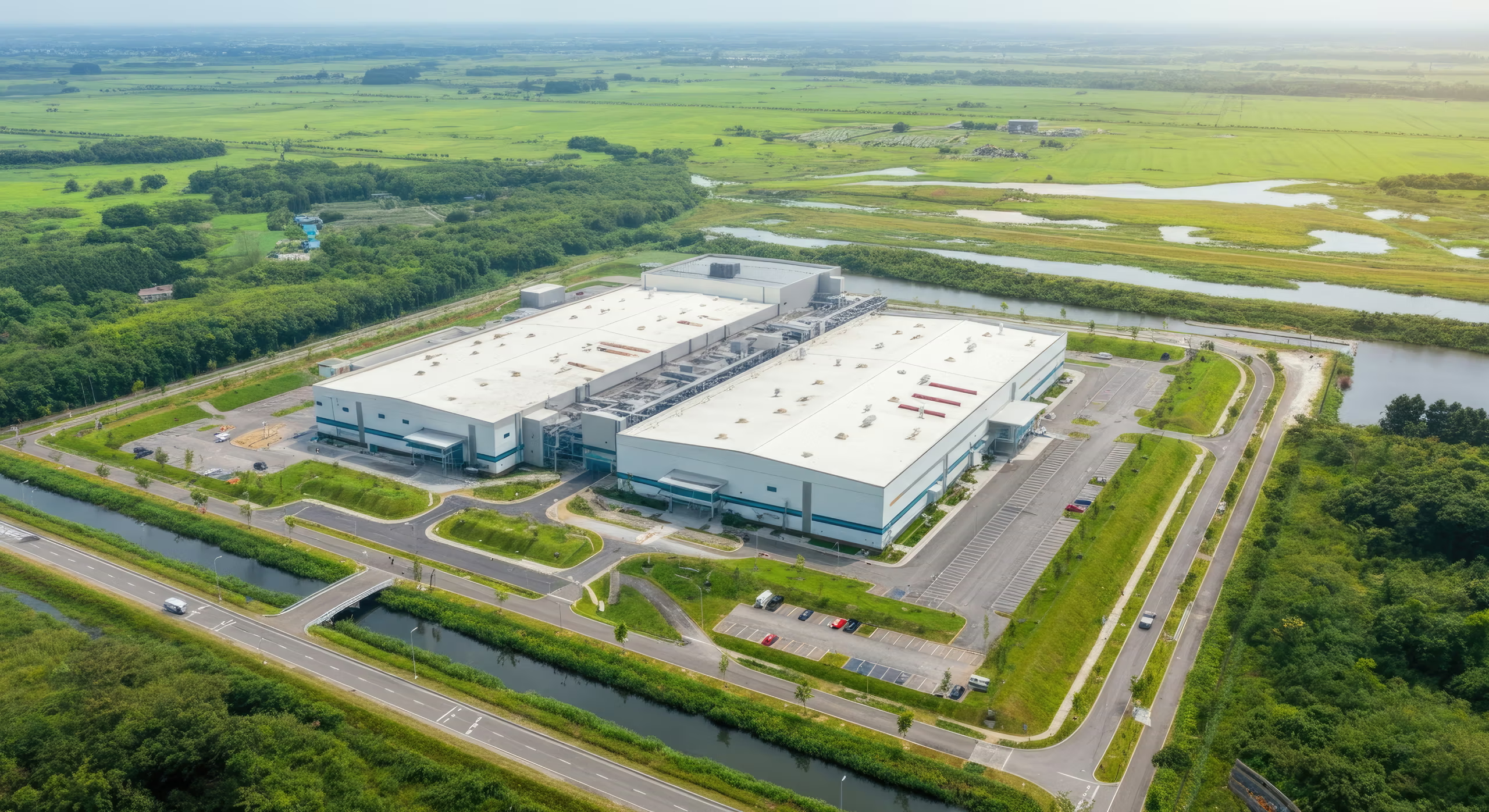
Business & supply chains
Help bring food from farms to tables through logistics, sales, and agribusiness management.
-
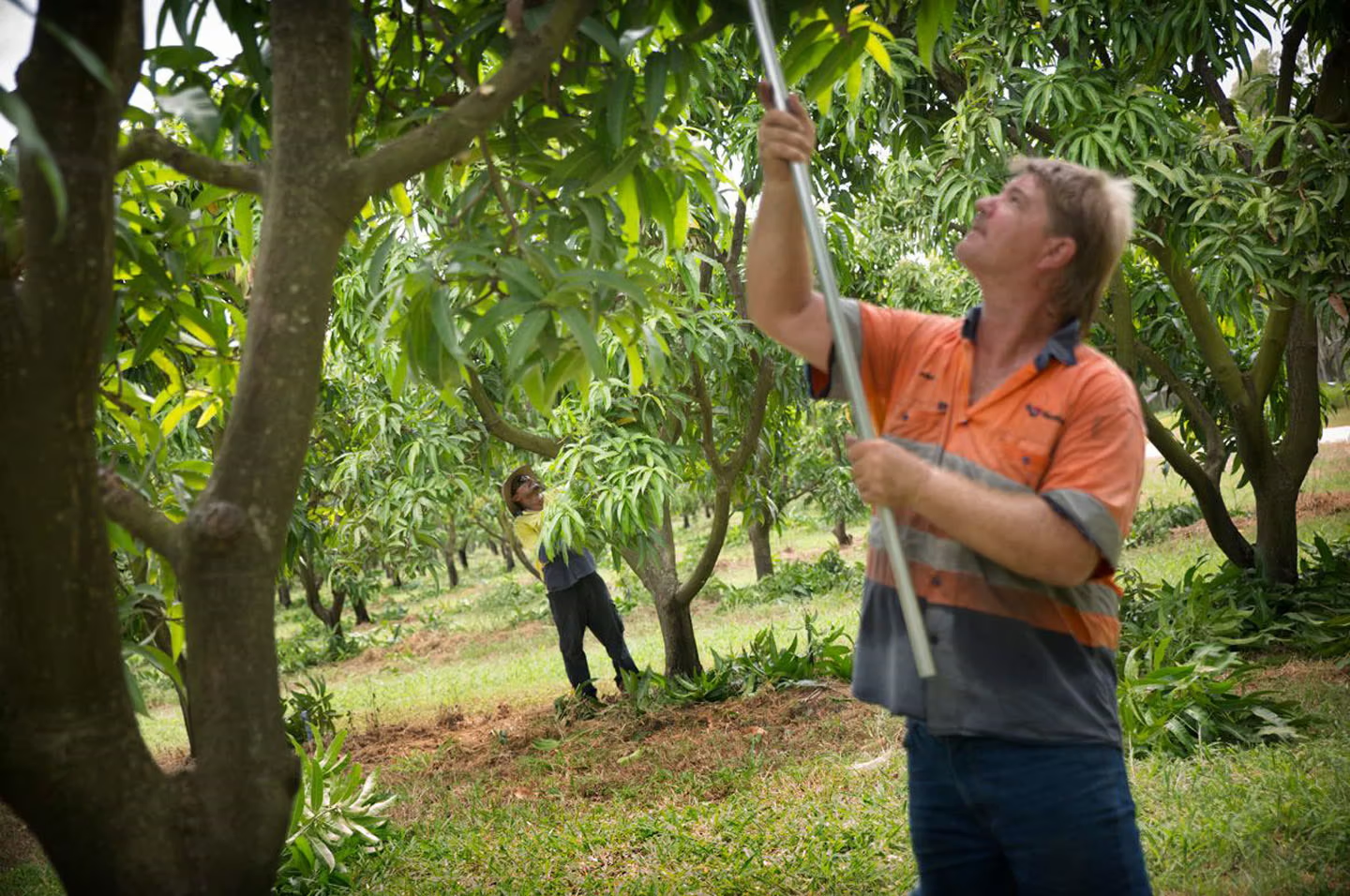
Hands-on farming & production
Be directly involved in growing crops and producing food, from traditional farming to innovative vertical farms.
Explore what a future in
Agriculture could look like
Dig a Little Deeper into Ag Careers
Curious about what it’s really like to work in agriculture? Let’s take a closer look at the opportunities and how they could shape your future.

Inspiring Stories from the Field
Discover how tradition meets technology in agriculture—hear from people making a difference in this fast-growing industry.
Find Out More About Agriculture and Potential Careers!
Want to dig even deeper into what agriculture looks like in the Greater Whitsunday region? Explore these resources to learn more about how the industry is growing, changing, and creating exciting possibilities for the future.
-
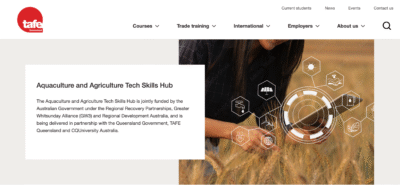
Aquaculture and Agriculture Tech Skills Hub
Dive into bite-sized learning with micro-credentials that let you pick up essential ag-tech skills fast, getting you ready for an exciting career in the ever-evolving agriculture industry.
-
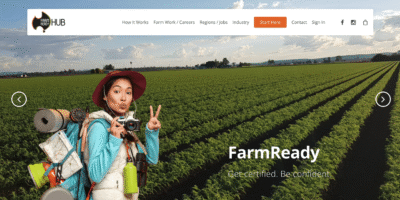
Farm Ready Hub
Ready to get hands-on and start your farm career? Find out about real farm jobs, tips for getting hired, and how to build skills that will take you places in agriculture.
-

Queensland Farmers Federation (QFF) Your Career in Ag
Discover how exciting and diverse a career in agriculture can be! Explore real stories, cool job options, and the skills you’ll need to grow your future in this ever-changing industry.
-
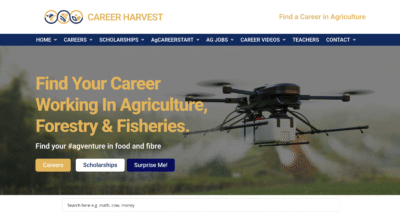
Career Harvest
Learn more about career pathways in agriculture and the types of roles you could have with Career Harvest.
-
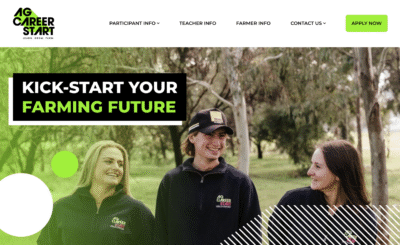
Ag Career Start
Take a gap year with purpose, gaining hands-on experience, learning new skills, and exploring exciting career options in agriculture before you decide your next step.
Want to learn more about study and career pathways?
Explore regional options and find out who to contact for more information here.
Step into a world of innovation, growth, and endless possibilities—could your career be in agriculture?
Keep exploring to see where your future could take you
-
Cattle Farmer
Combine practical skills with modern tools to manage livestock, land, and operations for sustainable beef production.
As a Cattle Farmer, you’ll be responsible for the daily care and management of cattle, including feeding, monitoring health, and maintaining infrastructure like fences, water systems, and yards. You’ll use working dogs or helicopters to move cattle across large properties, and technology such as GPS trackers, sensors, and drones to monitor livestock and pasture conditions. Automated feeding systems and genetic selection tools are also used to improve efficiency and breeding outcomes.
In the Greater Whitsunday region, Cattle Farmers play a vital role in the agricultural sector—supporting regional economies and supplying beef to national and international markets.
What you might do day-to-day:
- Feed and check the health of cattle using sensors and observation
- Use dogs, drones, or helicopters to move and monitor herds
- Maintain fences, water systems, and yards
- Manage breeding programs and calving with genetic tools
This role suits people who:
Enjoy physical outdoor work, are comfortable with animals, and want to use technology to support productivity and sustainability.Pathway:
Experience on the land is valued and agricultural certificates or apprenticeships can support career progression. -
Farm Hand
Support daily farming operations across cropping or livestock enterprises using hands-on skills, modern tools, and a strong work ethic.
As a Farm Hand, you’ll assist with planting, irrigating, harvesting, packing, fencing, feeding livestock, and maintaining equipment—depending on the farm type. You may work across diverse livestock, horticulture, and cropping operations. Many farms now use GPS-guided machinery, automated irrigation systems, and data-driven tools, so you’ll gain experience with both traditional practices and emerging ag-tech.
In the Greater Whitsunday region, Farm Hands are essential to farms and agribusinesses that grow food, fibre, and livestock for Australia and export markets.
What you might do day-to-day:
- Operate tractors, harvesters, and irrigation systems (including automated tech)
- Plant, weed, prune, or harvest crops
- Feed livestock and maintain fences, yards, and sheds
- Assist with equipment and machinery maintenance
This role suits people who:
Enjoy outdoor work, are practical, and are keen to be exposed to ag-tech.Pathway:
On-the-job learning is common and agricultural or trade certificates can enhance opportunities. -
Agronomist
Help farmers improve crop production by applying science, data, and innovation to soil, plant, and farming system management.
As an Agronomist (crop and soil specialist), you’ll work with growers to boost productivity and sustainability. You’ll analyse soil and crop health, recommend fertilisers and pest management strategies, and advise on planting techniques, water use, and emerging technologies. Your role may involve field trials, data analysis, and staying up to date with new agricultural research.
In the Greater Whitsunday region, Agronomists play a vital role in supporting agricultural cropping and horticulture industries, helping farmers grow more efficiently while protecting natural resources
What you might do day-to-day:
- Assess soil, crop, and plant health through testing and observation
- Develop plans for fertiliser use, irrigation, and pest control
- Monitor crop performance and recommend improvements
- Use data tools, GPS mapping, and remote sensing technology
This role suits people who:
Enjoy science, problem-solving, and working outdoors with people and data.Pathway:
Typically requires a university degree in agricultural science or agronomy; internships and field experience are valuable. -
Drone Operators
Use cutting-edge drone technology to help farmers monitor crops, manage land, and improve productivity from above.
As a Drone Operator in agriculture, you’ll fly drones to capture images, map fields, and assess crop health. You may assist with targeted spraying, seeding, or monitoring livestock. Drones help farmers make better decisions about irrigation, fertiliser, and pest control while reducing manual labour. This role blends tech skills with a practical understanding of farming.
In the Greater Whitsunday region, Drone Operators are increasingly used across sugar, horticulture, and broadacre farming to boost productivity and support sustainable land management.
What you might do day-to-day:
- Fly drones to map fields and check crop or soil health
- Collect and analyse aerial data using software
- Assist with drone-based spraying or seeding
- Maintain drone equipment and follow safety regulations
This role suits people who:
Enjoy working with technology, being outdoors, and supporting innovation in agriculture.Pathway:
Requires a Remote Pilot Licence (RePL) and agricultural or agritech training is an advantage. -
Data Analyst
Turn data into insights that help farmers make smarter, faster decisions for improved productivity and sustainability.
As a Data Analyst in agriculture, you’ll work with information from drones, sensors, weather stations, and machinery to help farmers optimise planting, irrigation, fertiliser use, pest control, and yields. Your role supports precision agriculture by combining data analysis with practical farming knowledge.
In the Greater Whitsunday region, Data Analysts are increasingly important in cropping, horticulture, and livestock farming—helping producers improve efficiency, reduce waste, and adapt to changing conditions.
What you might do day-to-day:
- Collect and analyse data from equipment, drones, and software
- Identify trends to improve crop or livestock performance
- Create simple reports, maps, or dashboards to guide decisions
- Work with farmers and agronomists to support farm planning
This role suits people who:
Enjoy working with numbers, solving problems, and applying technology to real-world challenges.Pathway:
A degree in data science, agricultural science, or a related field is typically required. Agriculture experience or interest is highly valued. -
Supply Chain Coordinator
Keep agricultural products moving smoothly from paddock to plate by managing logistics, quality, and communication across the supply chain.
As a Supply Chain Coordinator in agriculture, you’ll oversee the journey of goods like beef, cattle, wheat, horticulture, and other crops—from farms to processors, markets, or export. You’ll coordinate transport, manage inventory, track orders, and work with farmers, transporters, and buyers to ensure timely, cost-effective delivery. Strong planning and communication are key in this fast-paced, behind-the-scenes role.
In the Greater Whitsunday region, Supply Chain Coordinators are vital in linking producers to markets, supporting local agriculture and global trade.
What you might do day-to-day:
- Schedule and monitor the transport of agricultural goods
- Track inventory and manage supply chain data systems
- Liaise with growers, freight providers, and customers
- Ensure quality, compliance, and delivery timelines are met
This role suits people who:
Enjoy planning, problem-solving, and working with people and systems.Pathway:
VET or university study in logistics, agribusiness, or supply chain management is recommended. -
Irrigation Technician
Ensure crops receive the right amount of water for optimum growth by installing, maintaining, and repairing irrigation systems across diverse farms.
As an Irrigation Technician in agriculture, you’ll work with systems for sugar, horticulture, wheat, and other crops. You’ll install and service pumps, pipes, sprinklers, and automated controls to deliver precise water amounts, promoting healthy crop growth and high yields. You’ll use soil moisture sensors and remote monitoring to adjust watering schedules practically and efficiently, balancing productivity with water conservation.
In the Greater Whitsunday region, Irrigation Technicians play a key role in supporting productive and sustainable farming through effective water management.
What you might do day-to-day:
- Install and maintain irrigation pumps, pipes, sprinklers, and automation systems
- Monitor soil moisture and adjust irrigation to support optimal crop growth
- Troubleshoot faults and repair irrigation equipment
- Work with farmers and agronomists to balance water use and crop needs
This role suits people who:
Enjoy practical technical work, problem-solving, technology, and supporting healthy crops.Pathway:
Certificate III or IV in Irrigation or Agriculture is typical and on-the-job training is common.

